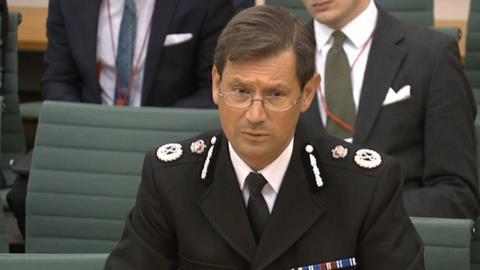The new SFO director Nick Ephgrave QPM (pictured) recently marked his first 100 days in post after succeeding Lisa Osofsky in September. Ephgrave has overseen a dynamic start to his tenure with the announcement of three new investigations. Greater challenges lie ahead, however. The ultimate test will be whether these new and other pre-existing investigations are successfully concluded under his watch, either by way of corporate resolution or contested trial that makes it past the halfway stage and avoids damaging disclosure failures.


Much has been made of Ephgrave being the first non-lawyer director, having previously served as the assistant commissioner of the Metropolitan Police. But this will likely be of little import given that he is surrounded by, and will presumably take advice from, seasoned criminal lawyers. The director’s key functions are operational, directional and cultural, for which being a qualified lawyer is not a prerequisite. Ephgrave has already made full use of his specialist investigative background and appears keen to lead by action rather than rhetoric, giving limited press interviews and instead getting on with the job of revitalising the agency.
New director, new legislative toolkit
Ephgrave took up the role amid the most radical legislative overhaul of the UK corporate criminal landscape in decades. The Economic Crime and Corporate Transparency Act 2023, passed in October, significantly enhances the corporate criminal liability toolkit available to the SFO. It introduces a new offence of failure to prevent fraud and an expansion of the ‘identification doctrine’ – the main way in which criminal liability has been attributed to corporate entities in England and Wales – for economic crimes, including ‘senior managers’.
Additionally, the SFO’s powers of compulsion pursuant to section 2 to the Criminal Justice Act 1987, previously available only in cases involving international bribery and corruption, have been extended to cover cases of suspected fraud and domestic bribery. This should speed up the SFO’s case acceptance and, if used properly, ensure that only those cases in which the evidence supports an investigation are taken on. Together, these legislative developments should make it easier for the SFO to investigate and prosecute serious and complex fraud and corruption, underpinning Ephgrave’s desire to build a ‘strong, dynamic and pragmatic’ agency.
This emphasis on pragmatism is notable and could indicate a willingness to keep the deferred prosecution agreement (DPA) door open for companies that are willing to acknowledge wrongdoing, cooperate fully with the SFO and undertake a process of corporate overhaul and remediation.
Promising start
Shortly before the new director took up his role, the SFO closed its long-running investigations into two mining companies. Cleared to set the tone for his own time in charge, Ephgrave quickly evidenced the clear-eyed and fast-paced decision-making that critics allege has been missing.
In October, the SFO announced an investigation into suspected fraud at the funeral company Safe Hands Plans Ltd and its parent company SHP Capital Holdings Ltd after the collapse of their funeral plan scheme in 2022.
In November, Ephgrave authorised a dawn raid in connection with the investigation into the collapsed law firm Axiom Ince and an alleged £66m of missing client funds. The raid involved more than 80 SFO investigators, accompanied by Metropolitan Police officers, conducting searches across nine sites and resulted in the arrest of seven individuals.
In December, underscoring his preference for visible action, Ephgrave authorised a second dawn raid. This resulted in the arrest of one individual at the London address of the aircraft parts supplier AOG Technics Ltd, in connection with an investigation into suspected fraud.
Sterner tests to come
The prompt launch of new investigations and the renewed use of the agency’s search and seizure powers point towards a fresh energy under Ephgrave. However, as his predecessors have discovered, the hardest part is yet to come. The SFO’s recent record of securing convictions following a contested trial is mixed and the agency has at times struggled to achieve successful conclusions in its larger corporate investigations.
The SFO’s first potential opportunity to secure individual convictions is the ongoing trial of two individuals accused of bribing Saudi Arabian officials to secure defence contracts with the UK government for GPT Special Project Management. Both defendants have pleaded not guilty.
The SFO has also committed to making its individual charging decisions in the Glencore case by July, though if charges are brought it will be some time before the cases reach trial. Indeed, the trial of four individuals charged with fraud in September 2023 in connection with the collapse of bakery chain Patisserie Valerie will not take place until March 2026. The defendants have yet to enter a plea.
The new director is off to a promising start, but we must remember that he is serving an initial five-year term. A reliable assessment of his success or otherwise in the role is best deferred to 2028, rather than after the first 100 days.
Lloyd Firth is counsel and Fred Saugman a senior associate at WilmerHale, London
































No comments yet